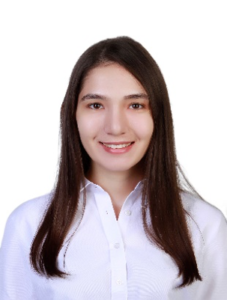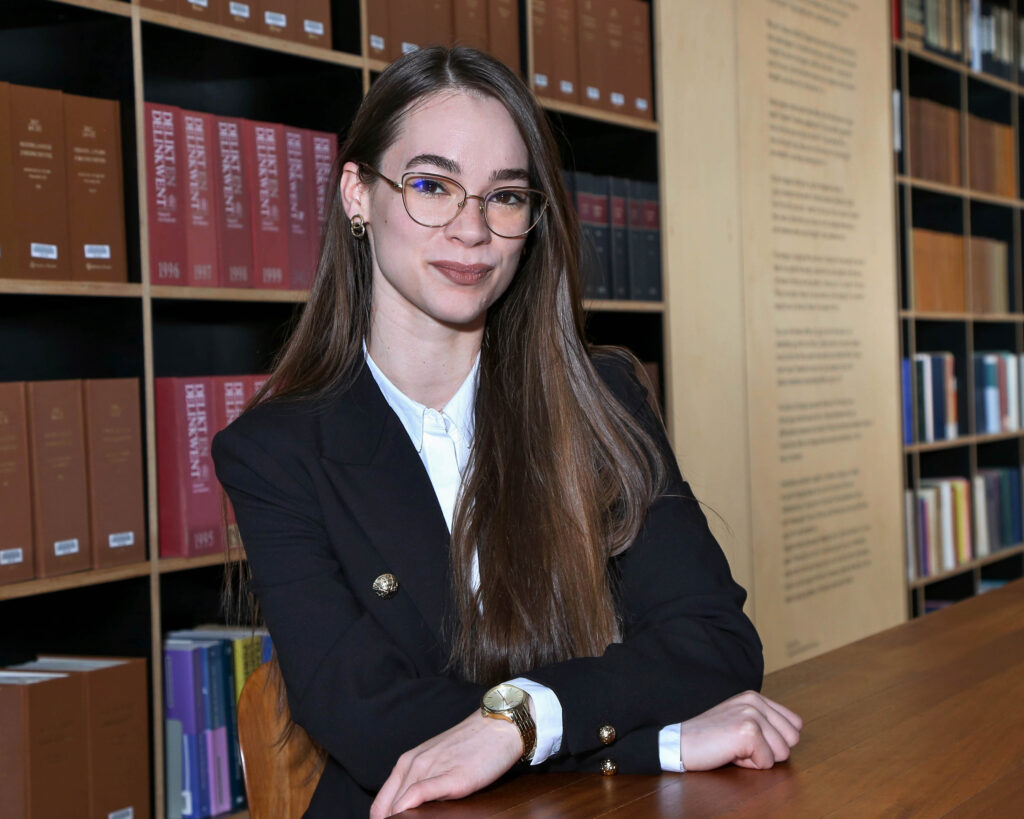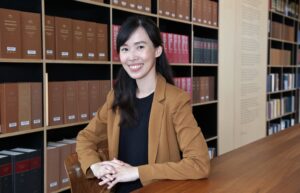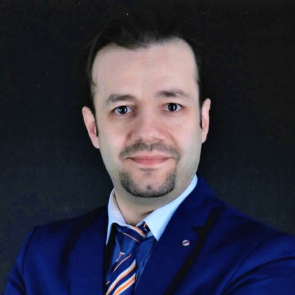Junior fellows
DIGOV’s junior fellows are PhD students conducting research in the field of Digital Governance. Their research aims to educate the public about the effects of technological and social disruptions such as Big Data, Artificial Intelligence, Robots, 3D-Printing, the Smart Factory, Autonomous Cars or Chat Bots.
Our Junior Fellows conduct their research at one of the universities of our international partnership: the Erasmus University of Rotterdam, the Bar-Ilan University and the University of Leeds.



The junior fellows (Phd students)
ESra demir
Esra graduated from Ankara University Faculty of Law at the undergraduate level and she holds a master degree from the University of Galatasaray Faculty of Law (Istanbul), Public Law Master program. Her master thesis is about the protection of molecular genetic data in criminal law. Since 2017 she is a member of the Union of Turkish Bars.
As a Ph.D. researcher at Erasmus School of Law of Erasmus University Rotterdam she focuses on questions related to the ownership of human-bio data. She is concerned with questions like individuals’ rights to get a fair share of the financial profit enjoyed by researchers who develop new diagnostic tools and drugs with the help of patients’ genetic data. What kind of laws and regulations are needed to keep the interests of the individual as well as the society in genome and bio-data.

joris krijger
Joris Krijger’s Moral AI-Gency project is centered around the question of operationalizing ethics in specific Artificial Intelligence domains. The field of AI ethics, with its strong emphasis on high-level principles, has yet to start exploring how these ethical principles can be operationalized. Focusing on the conflicting demands that principles can impose on AI design and the challenge of formalizing multi-dimension concepts such as ‘fairness’, this PhD examines the specifically the organizational dimension of AI ethics. Thereby Joris focuses on governance processes as well as on the underlying assumptions and values shaping AI development. With his research he likes to to contribute to an answer on the just distribution of moral responsibility and ethical risks in AI development and deployment.

kostina prifti
Kostina Prifti holds a LLM degree (cum laude) in Law and Technology from Tilburg University (2020) and a MSc in Public Law from University of Tirana (2017). Since September 2020 he is a PhD researcher at Erasmus School of Law, researching the regulation of autonomous robots in healthcare. The large-scale emergence and diffusion of autonomous robots in healthcare appears a matter of course and it brings along disruptions to our legal norms, the most prominent of which are in the regimes of liability and patient safety, privacy, personal autonomy and liberty of patients, authenticity and deception of patients. This PhD research takes a technology-regulation approach and asks what the most effective mode of regulation for this technology would be, adopting a decentred understanding of regulation that includes private stakeholders in the decision-making framework. The conclusions of this research aim at guiding regulators in ensuring compliance of autonomous robots in healthcare with our ethical and legal norms, as well as present relevant contributions in the theoretical ground of technology regulation.

Larisa munteanu
Larisa Munteanu graduated as one of the top students from the Faculty of Law of Babeș-Bolyai University, Cluj-Napoca, Romania, where she obtained both the Bachelor’s degree and the Master’s degree on International and Comparative Business Law, with theses in the field of Technology Law. In 2021, Larisa began working as a Data Protection Lawyer and a Data Protection Officer in the UK, holding accreditations from the International Association of Privacy Professionals as a Certified Information Privacy Manager (CIPM) and Certified Information Privacy Professional for Europe (CIPP/E). More recently, she set up a company for guiding businesses through the data protection compliance journey.
Her main interests are cyber-crimes, AI and global regulations on personal data protection, passions which were reflected through her published articles and in parallel, by speaking at international conferences, webinars and podcasts. In 2022, Larisa extended her list of awards by winning the Best International Future Lawyer Award, as part of the 60th Annual Congress of the International Association of Young Lawyers, held in Singapore. She was recognised for her valuable presentation on the impact of digitalisation on the legal profession during the COVID-19 pandemic.
At the same time, as a PhD researcher at Erasmus University Rotterdam, she is looking into how data controllers can reject data protection requests stemming from the EU and UK GDPR, in particular the ones submitted upon committing identity theft or as part of a malware attack. An important highlight of this project will be how Article 12 (5) of the GDPR applies in practical, yet threatening cases affecting businesses and subsequently, how the post-Brexit effect influences this whole context.

linfeng xie
Linfeng Xie’s project is centered around the question of cross-border data protection between China, the EU and the US in terms of regulation practices of governments and contract practices of businesses. Data collection, capture, analysis and application are also showing a trend of globalization, but data supervision has not kept up with the pace of globalization. Besides, no unified rules have been reached between countries. In the context of countries adopting different regulatory systems for cross-border data flow, the relationship between data security and data flow is difficult to balance globally. Therefore, his research focuses on how to improve relevant regulations in the EU, the US and China by drawing on international experience.

melinee kositwatanarerk
Melinee is a Judge at the Court of Justice of Thailand receiving a full scholarship from the Office of the Judiciary to pursue her PhD in data protection law. She graduated her Bachelor’s degree from Chulalongkorn University with the first class honors. Melinee earned two Master’s degrees, which are Master of European Intellectual Property Laws at Stockholm University with the Swedish Institute Scholarship, and Master of Laws at the University of Melbourne with the Endeavour Postgraduate Scholarship.
Her PhD research at EGSL concerns the conflict-of-law issues in cross-border data protection claims to create more legal consistency and predictability in the private enforcement. Since data collection and processing usually involves digital activities, the data protection claims then mostly carry cross-border characteristics with connection of more than one country. A single cause of action may be subject to several jurisdictions, but the interesting question is which law of which country should be the applicable law to the case. While many jurisdictions, like the EU, Thailand, New Zealand, Australia, Japan, and Brazil, all contain some extraterritorial provisions in their data protection laws trying to extend the application of their laws to cover activities beyond their territories. This kind of extraterritorial provision would undeniably cause a duplication of legal application over the same cause of action and lead to a question of its validity under the aspect of the Private International Law.

ofir stegmann
Ofir Stegmann is a Ph.D. student at Bar-Ilan University Faculty of Law and a member of the BIU LawData Lab. His doctoral dissertation, “Regulatory Networks: Empirical Network Analysis of CSR International Organizations and the Israeli Legislators and Parties” (advisors: Prof. Oren Perez & Prof. Reuven Cohen), integrates regulatory questions with network science and big-data programming implementations. During his doctoral studies, Ofir was awarded by the President of Israel, Bar-Ilan President and Bar-Ilan Rector, and assists\ed in courses on data science, networks, text analysis and international economic law. He has a LL.B. (Summa Cum Laude) from Bar-Ilan University and clerked for Adv. Eli Zohar, the chairman of Goldfarb-Seligman law firm.

radwan eskhita
Radwan Eskhita is a doctoral candidate since 2019 at Erasmus School of Law of Erasmus University Rotterdam. He holds a Master of Law degree from Johannes Gutenberg University in Mainz, Germany. His research interests lie in the area of data protection and privacy laws with focusing on the laws in the Gulf Council Countries (GCC). For his M.A. thesis, he wanted to have a better understanding of the data protection law for the cloud providers. For his PhD thesis, he is working under the supervision of Prof Stamhuis and Prof Heine, he is studying data protection laws in GCC and wishes through his research to understand the extent to which data protection norms travelled to the Gulf Council Countries as a consequence of policy decisions inside EU-based multinational companies. He is working as administrator in the field of compliance and technology in Germany. He also writes and publishes regularly legal and technical articles in several online newspapers and academic journals.
